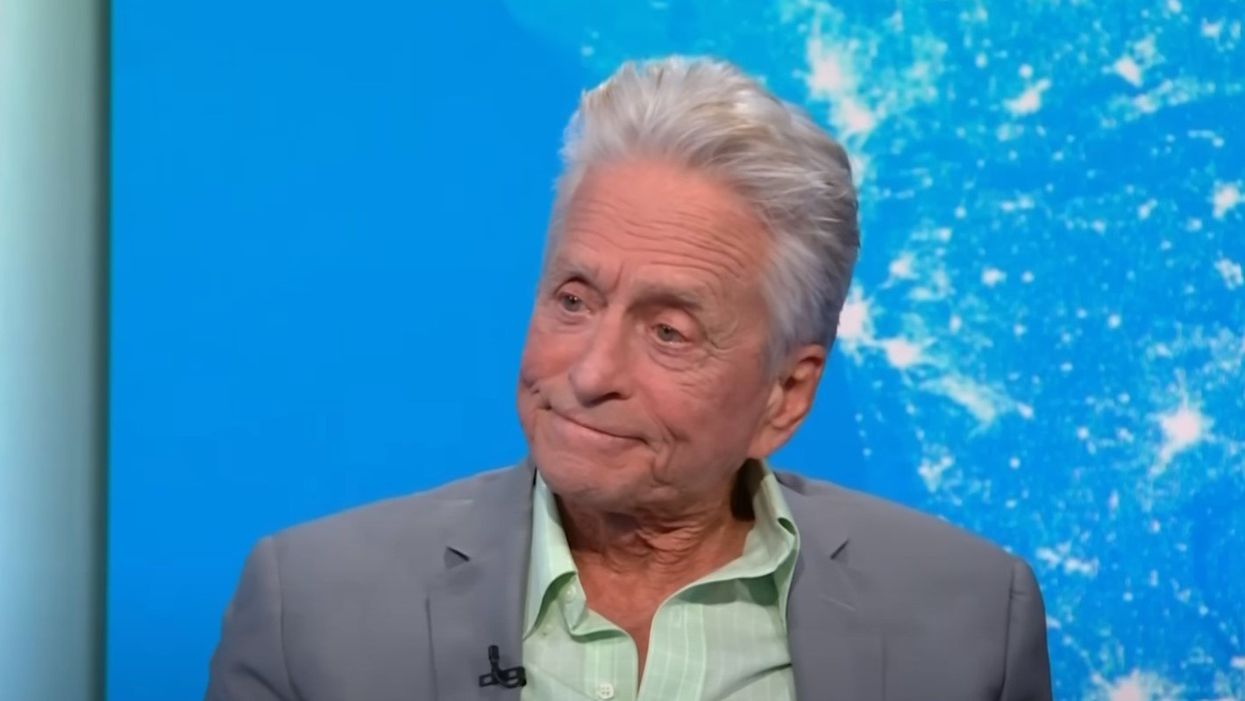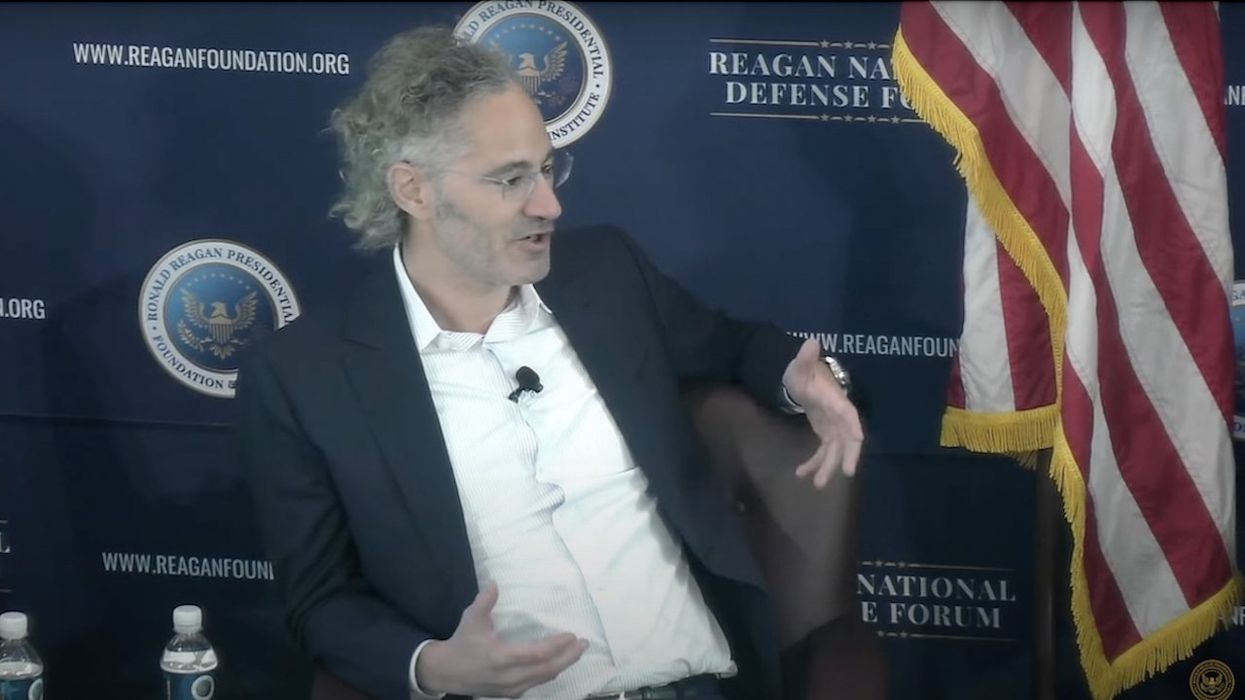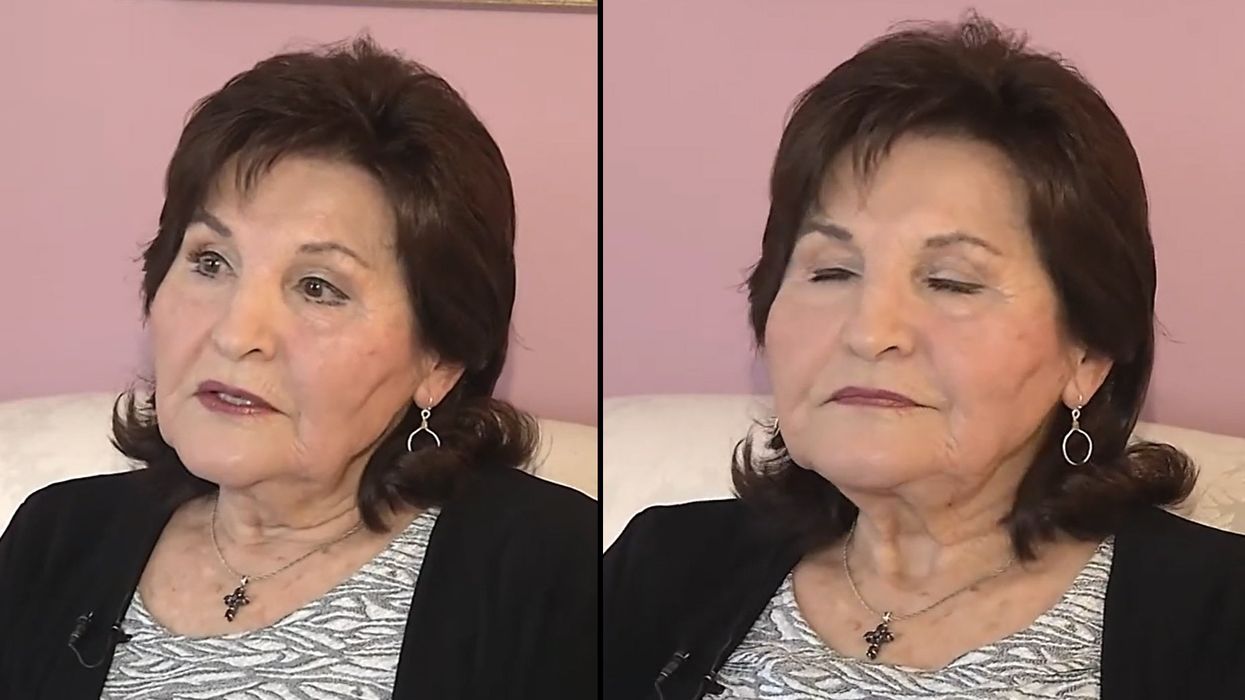
© 2024 Blaze Media LLC. All rights reserved.
Freedom for Leopoldo: The U.S. and Political Prisoners in the Americas
November 12, 2014
Leopoldo López, a Venezuelan political leader, has been in jail since February 18, 2014. The problem is that he shouldn't be. The inability to free him is a sad testimony of the state of democracy in several countries in the Americas.
The case of Venezuelan political leader Leopoldo López, in jail without a sentence since February 18, 2014, seems so clear, that the inability to secure his release, is a testimony of the sad state of democracy in several countries in the Americas. The neglect and the silent complicity of many is troublesome. It is time to make a big push for the release of Leopoldo López and other political prisoners in Venezuela.
International organizations from left, right and center have called for López's immediate release. Even in the United Nations, an unlikely actor given that it recently accepted Venezuela as a member of its Security Council, chimed in: its “Working Group on Arbitrary Detention” determined that López's detention was arbitrary and he should be let go. Amnesty International also called for Venezuela to comply with the U.N. recommendation.
 Leopoldo López before being taken to jail. (Photo Credit: Adriana López)
Leopoldo López before being taken to jail. (Photo Credit: Adriana López)
How are the Venezuelan courts reacting? Carlos Vecchio, National Political Coordinator of Voluntad Popular (“Popular Will”) the social and political movement led by López, tells me: “as a way of delaying her response to the UN resolution, judge Susana Barreiros has indefinitely suspended proceedings in the Court under her direction. Leopoldo will not go to any other court hearing until the judge decides about the UN resolution which demands his immediate release. The international community must support the UN resolution and raise its voice in order to stop the violation of Leopoldo's human rights.”
I had a chance to speak with several members of Leopoldo López’s family. His sister Adriana, described the many abuses his brother is suffering beyond the arbitrary legal measures. The latest was to shower him and other prisoners with human excrements in order to weaken their spirit. She tells me “As a family we all stand behind Leopoldo's decisions and commitment to the betterment of Venezuela. These have been difficult times for all of us, but we hope that his sacrifice will help change the course of our country.”
Leopoldo is the most noted victim of arbitrary injustice, but he is not alone. Another political leader and champion of the civil society, Maria Corina Machado, was prevented last month to travel to the United States to receive the 2014 Charles T. Manatt Democracy award from the International Foundation for Electoral Systems. This week she was scheduled to be one of the stars during the events to celebrate freedom and the 25th anniversary of the “Fall” of the Berlin Wall organized by the Atlas Network. The judge again curtailed her right to travel. Pedro Burelli, a US based Venezuelan businessman, accused in the same case as Machado states: “the Venezuelan Judicial System is part of the oppressive scaffolding of the dictatorship.”
The above are the most famous, and as they all received part of their education in the United States, their cases are better known. Vecchio and Machado attended Yale, López graduated from Harvard, and Rodrigo Diamanti Vidaurre, had received a scholarship to Harvard and is still waiting. Rodrigo leads an NGO focusing on freedom of expression “Un Mundo sin Mordaza” (Un-muzzled World). Other noted prisoners include Daniel Ceballos and Enzo Scarano, but many more innocents, in jail or with arbitrary indictments, have few vouching for them. The pattern is easy to see: if you work for freedom, the Venezuelan government will find a way to curtail your liberties.
 Maria Corina Machado, and Leopoldo López, too dangerous for the Venezuelan government? (Photo: Courtesy of Author)
Maria Corina Machado, and Leopoldo López, too dangerous for the Venezuelan government? (Photo: Courtesy of Author)
What if you work against freedom? Then the Venezuelan government acts as a facilitator. O’Globo, a leading Brazilian newspaper, reported about the investigations on Hezbollah operations in Brazil. Since 2007, with the help of the Cuban government, Hezbollah members, and other unsavory characters, can get identity cards which allow them to roam freely from Mexico to Argentina. A new book, Iran’s Strategic Penetration of Latin America, edited by Joseph Humire, of the Center for a Secure Free Society, shows the seriousness of the problem. Continued impunity in Venezuela and US porous borders, can bring the problem closer to home.
Fortunately Latin American and world leaders are beginning to react. At the recent XVth Iberoamerican summit, former presidents Felipe González (Spain), Fernando Henrique Cardoso (Brazil), Ricardo Lagos (Chile), Julio María Sanguinetti (Uruguay) and Belisario Betancourt (Colombia), were the most prominent signers of a declaration calling for the release of the prisoners. Just a few days ago, the Federation of Latin American Associations, Cities and Municipalities, gathering in Santa Marta, Colombia, also called for the liberation.
The López family including his wife Lilian Tintori and sister Adriana plead the free world to maintain the pressure, putting sanctions on those who have been engaged and have been partnering with violators of human rights in Venezuela; they want us to go beyond the U.S. “conservative” world and ask President Obama, who called for Leopoldo López’s liberation during the Clinton Global Initiative, to follow up his words with actions; and to ask U.S. legislators to increase the awareness among their constituents of Venezuelan violations and abuses.
Alejandro Antonio "Alex" Chafuen is President of the Atlas Economic Research Foundation, and a trustee of Grove City College, contact him at alex.chafuen@atlasnetwork.org
–
TheBlaze contributor channel supports an open discourse on a range of views. The opinions expressed in this channel are solely those of each individual author.
Want to leave a tip?
We answer to you. Help keep our content free of advertisers and big tech censorship by leaving a tip today.
Want to join the conversation?
Already a subscriber?
more stories
Sign up for the Blaze newsletter
By signing up, you agree to our Privacy Policy and Terms of Use, and agree to receive content that may sometimes include advertisements. You may opt out at any time.
© 2024 Blaze Media LLC. All rights reserved.
Get the stories that matter most delivered directly to your inbox.
By signing up, you agree to our Privacy Policy and Terms of Use, and agree to receive content that may sometimes include advertisements. You may opt out at any time.


